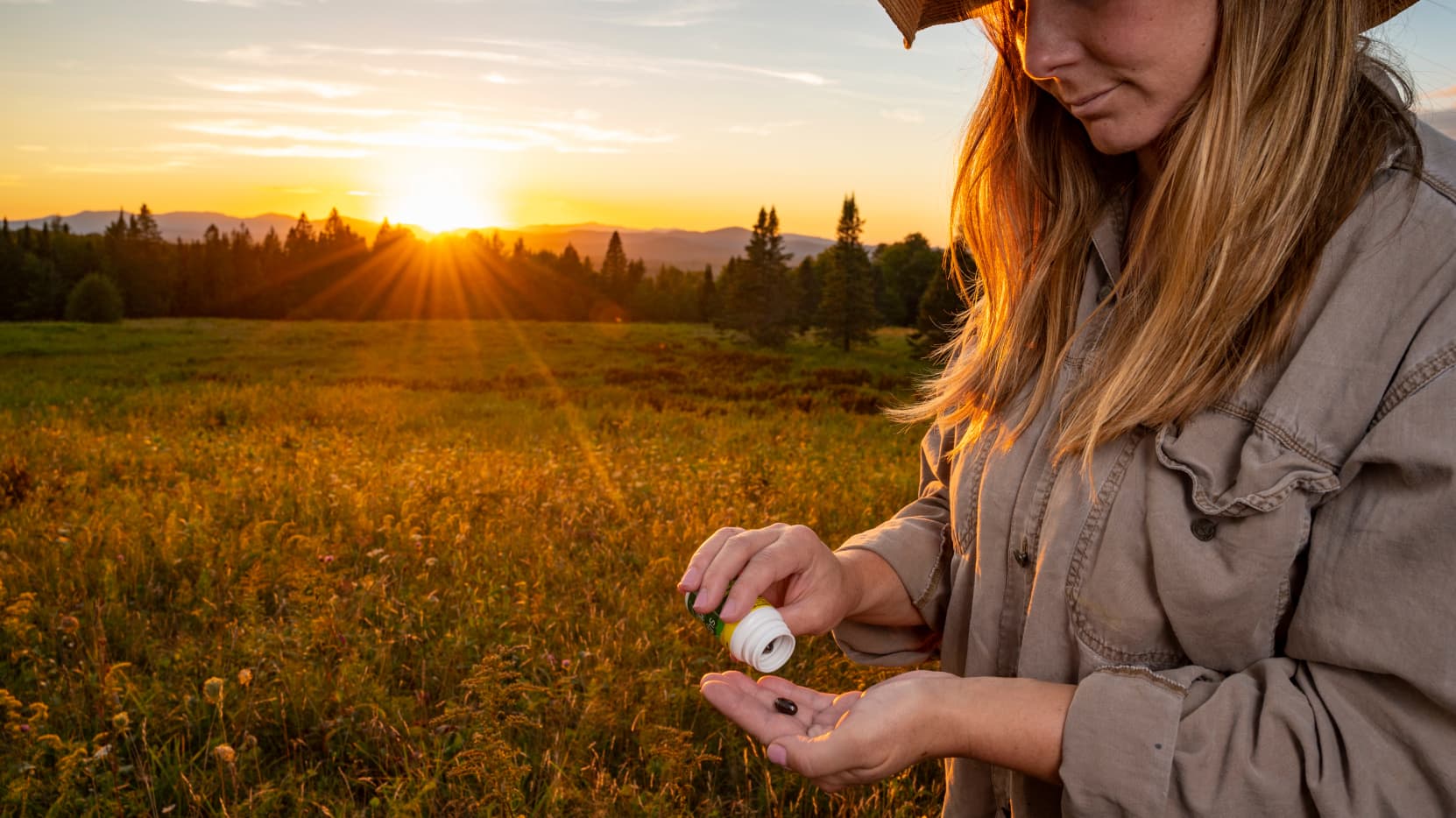
Many people experience trouble falling or staying asleep.
In fact, it’s been reported that 70% of adults in America suffer
from insufficient sleep one night per month.
For many, relying on OTC sleep aids isn't the ideal solution. That
has led people to try natural remedies, such as CBD Gummies, to
improve their sleep.
But what do we really know about CBD and its effectiveness for sleep issues?
CBD, also known as cannabidiol, is a naturally occurring compound
found in cannabis plants. Cannabis contains hundreds of these
cannabinoids. The most prominently known are THC and CBD.
Whereas THC is known for its intoxicating effects (the “high” from
cannabis), CBD does not share this intoxicating effect. Instead,
early studies have found that CBD and other cannabinoids may
provide health benefits.
CBD products are in a legal gray area in the United States.
Hemp-derived CBD products are legal on the federal level but are
still illegal in some states. (“Hemp” is a legal classification
referring to cannabis that contains very low levels of THC – less
than 0.3% of the plant’s weight). It is this legal gray area that
has slowed the pace of scientific study on cannabis and CBD.
The only CBD product that is FDA approved is a prescription drug called Epidiolex, which is used to treat pediatric epilepsy. CBD is not FDA approved as a dietary supplement.
While the benefits of CBD Gummies have not been adequately confirmed through clinical study, it is widely believed that CBD Gummies poses minimal risk to most people.
The World Health Organization stated, “In humans, CBD exhibits no
effects indicative of abuse or dependence potential… to date,
there is no evidence of public health related problems associated
with the use of pure CBD”
If you’re thinking of trying CBD Gummies, it’s always recommended to
first consult your doctor or a medical professional—especially if
you have a medical condition or take prescription drugs.
Finally, it’s important to purchase CBD from trusted and verified sources. A 2020 study by the FDA found that less than half of CBD products contained within 20% of the CBD stated on the label. It’s best to buy only from well-reviewed brands that publish lab tests verifying the purity and potency of ingredients.
In evaluating the use of CBD Gummies for sleep issues, it helps to first understand why you have a hard time sleeping.
Some of the most common causes of disrupted sleep are:
Discuss your sleep issues with a medical professional and ask whether CBD oil might be helpful for you.
While there is massive public interest in CBD, so far there is only moderate evidence that cannabinoids can improve your sleep.
A 2019 case series followed the effects of CBD on anxiety and sleep quality in 72 adult patients at a psychiatric clinic. After a month of observation, sleep scores improved for 48 of the patients (66.7%). The authors concluded that "controlled clinical studies are needed."
A 2021 literature review published in Neurotherapeutics pointed to a 2013 study in rats. That study found that increased doses of CBD resulted in increases in total sleep—but no human studies have corroborated these findings.
The 2021 review also pointed to a small study published in 2020 (sample size of 18 people) that found increased sleepiness in subjects who used CBD-dominant cannabis. But the study could not isolate the effect of the sleepiness to CBD (due to the presence of a small amount of THC in the cannabis).
In summary, there is no high-quality clinical research to support
CBD's impact on sleep—even though there is a great amount of
interest and anecdotal evidence to support its use.
We’re still in the early days of cannabis and CBD research.
Currently, there is not high-quality data to support the use of
CBD Gummies for improving sleep. Preliminary studies show potential.
More study is needed to isolate the serving sizes, formats and
regimen for using CBD effectively to manage sleep issues.
Still, many people report improved sleep as one of the benefits of
using CBD.
Because CBD is generally well-tolerated in humans, if you’re
curious about trying CBD for sleep, talking to your doctor is a
great place to start.
